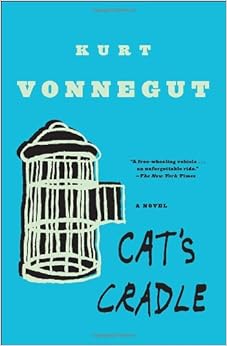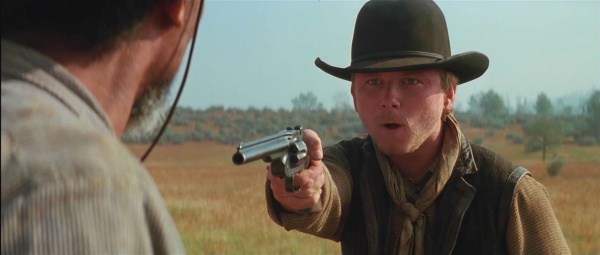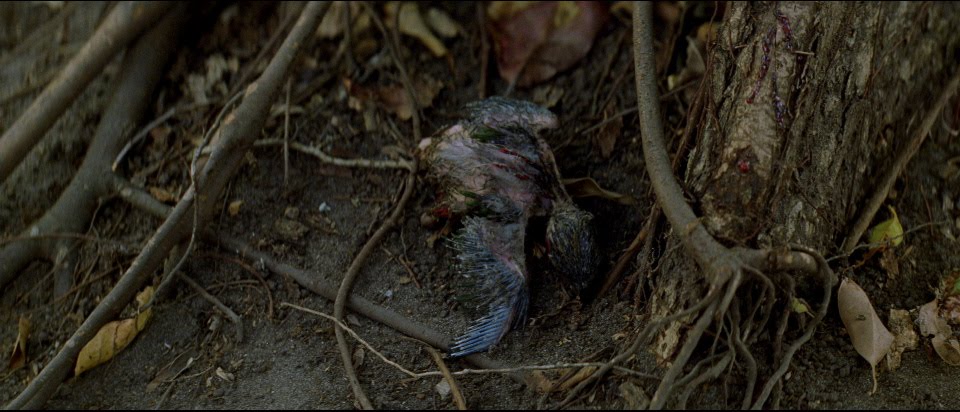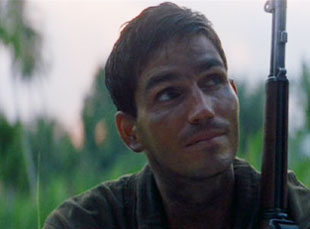An unpromising start
It would be hard indeed for a TV show to live up to the first season of True Detective. Harrelson and McConaughey had something special as the odd duo tasked to solve what looked like a troubling occult murder. Harrelson was an interesting character in his own right, even if McConaughey did steal the show. The setting of the South added to the tension and mystery. The flashback aspect of the first season helped too ; what the hell had the case done to Rust to send him off the rails so and turn him into an alcoholic hippy? Had it in fact screwed him up to the extent that he was now a copycat killer, as the next generation of detectives seemed to be implying in their interrogation ?
Season Two looks at three different cops from three different jurisdictions tasked to investigate the murder of a corrupt city official north of L.A ( perhaps here is a problem straight away - how much do we care about the murder of such a man, compared to the innocent young women of season one ? ) . Vince Vaughn is the criminal overlord Frank Semyon. He has his hooks in one of the cops, Ray, played by Farrell. Rachel McAdams and Taylor Kitsch play the other two troubled officers.
Right now, Season Two doesn't seem to be trying very hard to outdo it's predecessor and keeps it's cards close to it's chest. To be fair, so did Season One at first. But whereas Rust was a mysterious character whom we wanted to know more about, that intrigue is not created in Season Two. Colin Farrell does a great job, and is particularly interesting with how he deals with his son being bullied at school ( needless to say, it does not involve a polite sit-down with the Principal ) . But on the whole he cannot compare to Rust in terms of uniqueness. For all intents and purposes, Farrell plays just another corrupt cop, albeit with an interesting story of how he became corrupt in the first place. Since this is revealed early on, we don't really want to know that much more, even if he has our sympathies.
Vince Vaughn right now is the weak link letting the show down, and to be fair his character and writing are largely to blame. The scene where his henchmen beat up an investigative journalist is particularly telling. Vaughn approaches the man afterwards and is the exact opposite of menacing. Sometimes an actor can convey menace even when polite, and it creates a scarier effect. Not here. This could be Vaughn from Old School or Anchorman. It's a particularly badly written and acted scene and shakes your faith in the series. Vaughn really needs a scene where we become convinced of how and why he came to be the boss of a criminal empire. Right now, he's coming across as the stressed boss of a donut shop, and not one the employees particularly fear either. When he sends Farrell on another errand in episode two, you almost get the sense Farrell agrees not out of fear, but because Vaughn is boring him to death.
Kitsch's character has a touch of the mystery we crave, with his attempted suicide and sexual demons, but again they are not particularly unique. Likewise, Rachel McAdams struggles with family issues and alcoholism, ( indeed everyone in southern Cali seems permanently drunk ) but given this is near LA it seems pretty standard stuff all things considered ( No offence angels ). So your dad is a weird hippy cult leader ? Well, it is California. Your sister does cam porn ? Again, not the intriguing and more unsettling demons that Rust and Harrelson investigated in Season One. Indeed the writing seems to have used alcoholism as an excuse not to create realistic characters but instead prop up drunk caricatures. Problem is, drunks are boring when you are sober and watching TV.
There is some vestige of greatness from the first season ; the amospheric music has returned and at times provides a haunting soundtrack. But even here, what was previously an omniscient background theme has become an exposed, lone broken looking woman in a bar ( Lera Lynn ), as if symbolising the decline of this series and the lack of mystery.
Yet, episode two does end with a nasty shock, and hints at greater things to come. The director Justin Lin now hands over to William Friedkin. But with some badly written scenes and a particularly poor leading character in crime boss Semyon, it will take extraordinary skill to get this up and running to Season one standards.
There is yet one direction this show could go in order to improve ; backwards. Season One quickly took us back to the past and focused there. Perhaps if season two does the same it may yet impress us. The three cops at least may have pasts that are worthy of our attention.
It would be hard indeed for a TV show to live up to the first season of True Detective. Harrelson and McConaughey had something special as the odd duo tasked to solve what looked like a troubling occult murder. Harrelson was an interesting character in his own right, even if McConaughey did steal the show. The setting of the South added to the tension and mystery. The flashback aspect of the first season helped too ; what the hell had the case done to Rust to send him off the rails so and turn him into an alcoholic hippy? Had it in fact screwed him up to the extent that he was now a copycat killer, as the next generation of detectives seemed to be implying in their interrogation ?
Season Two looks at three different cops from three different jurisdictions tasked to investigate the murder of a corrupt city official north of L.A ( perhaps here is a problem straight away - how much do we care about the murder of such a man, compared to the innocent young women of season one ? ) . Vince Vaughn is the criminal overlord Frank Semyon. He has his hooks in one of the cops, Ray, played by Farrell. Rachel McAdams and Taylor Kitsch play the other two troubled officers.
 |
Blank expressions says it all right now.
(Image Courtesy of Parliament of Owls and Passenger)
|
Right now, Season Two doesn't seem to be trying very hard to outdo it's predecessor and keeps it's cards close to it's chest. To be fair, so did Season One at first. But whereas Rust was a mysterious character whom we wanted to know more about, that intrigue is not created in Season Two. Colin Farrell does a great job, and is particularly interesting with how he deals with his son being bullied at school ( needless to say, it does not involve a polite sit-down with the Principal ) . But on the whole he cannot compare to Rust in terms of uniqueness. For all intents and purposes, Farrell plays just another corrupt cop, albeit with an interesting story of how he became corrupt in the first place. Since this is revealed early on, we don't really want to know that much more, even if he has our sympathies.
Vince Vaughn right now is the weak link letting the show down, and to be fair his character and writing are largely to blame. The scene where his henchmen beat up an investigative journalist is particularly telling. Vaughn approaches the man afterwards and is the exact opposite of menacing. Sometimes an actor can convey menace even when polite, and it creates a scarier effect. Not here. This could be Vaughn from Old School or Anchorman. It's a particularly badly written and acted scene and shakes your faith in the series. Vaughn really needs a scene where we become convinced of how and why he came to be the boss of a criminal empire. Right now, he's coming across as the stressed boss of a donut shop, and not one the employees particularly fear either. When he sends Farrell on another errand in episode two, you almost get the sense Farrell agrees not out of fear, but because Vaughn is boring him to death.
Kitsch's character has a touch of the mystery we crave, with his attempted suicide and sexual demons, but again they are not particularly unique. Likewise, Rachel McAdams struggles with family issues and alcoholism, ( indeed everyone in southern Cali seems permanently drunk ) but given this is near LA it seems pretty standard stuff all things considered ( No offence angels ). So your dad is a weird hippy cult leader ? Well, it is California. Your sister does cam porn ? Again, not the intriguing and more unsettling demons that Rust and Harrelson investigated in Season One. Indeed the writing seems to have used alcoholism as an excuse not to create realistic characters but instead prop up drunk caricatures. Problem is, drunks are boring when you are sober and watching TV.
There is some vestige of greatness from the first season ; the amospheric music has returned and at times provides a haunting soundtrack. But even here, what was previously an omniscient background theme has become an exposed, lone broken looking woman in a bar ( Lera Lynn ), as if symbolising the decline of this series and the lack of mystery.
Yet, episode two does end with a nasty shock, and hints at greater things to come. The director Justin Lin now hands over to William Friedkin. But with some badly written scenes and a particularly poor leading character in crime boss Semyon, it will take extraordinary skill to get this up and running to Season one standards.
There is yet one direction this show could go in order to improve ; backwards. Season One quickly took us back to the past and focused there. Perhaps if season two does the same it may yet impress us. The three cops at least may have pasts that are worthy of our attention.












